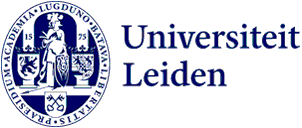Mid-term review: An open discussion about strategy for the legal programmes
On Wednesday 19 January 2022, the online mid-term review of the legal programmes took place on the platform Let’s Get Digital. It was an interactive afternoon in which 130 participants openly and critically discussed the educational strategy for the legal programmes and the faculty.
Students, lecturers, managers, employers and alumni participated in the afternoon event which was divided into various parts: a plenary part with lectures by Burkhard Schafer and Robine de Lange-Tegelaar, dialogue sessions, the presentation of the Leiden Law Skills Award and the feedback from the review committee.
AI, if you can beat them, join them
In the first lecture, Burkhard Schafer, Professor of Computational Legal Theory at Edinburgh Law School, spoke about the Covid era which has taught us a lot about online legal practice. Not everything worked, but a lot did. Now we are faced with the question of how to improve our online systems and make them more effective – for example: more interaction, subtitles, automatic translations or explanations given in simple terms. This offers great advantages for accessibility and inclusion. However, there will always be potential pitfalls, such as algorithms that produce discriminatory output. What we want is to train lawyers who can work competently in this technological society and interpret the results properly.

This was also repeated in Tycho de Graaf’s contribution. What does this actually mean for education? Tech must be given a place in what we teach and the University SAILS project is very important in this regard. This project combines research and teaching in the area of artificial intelligence. Courses have been set up and a minor is being prepared that contains a programming component. With these opportunities, future lawyers will come closer to the profile of the T-shaped lawyer: a lawyer with a certain focus, who also has a wide range of knowledge and skills. Incidentally, when asked if technology could ever replace lawyers, around 90 per cent of the participants replied no.
'You must always arrive at a fair judgment, otherwise you have to start the puzzle again.'
Robine de Lange-Tegelaar, President of The Hague Court and a member of Leiden University’s Board of Governors, spoke in the second lecture about shifts in society and their impact on legal education. Using topical examples, such as the child benefits scandal and fining policy, Robine de Lange-Tegelaar considered the aspects that are very important for the education of our law students.
- A court judgment should always be fair. To this end, a lawyer must have ready knowledge of the law and have plenty of ‘flying hours’. Well-developed and critical thinking skills are also essential.
- Maintaining the trias politica. We must ensure that students, but also society, realise that it is independence that is the foundation of our judicial system.
- Language. In today’s world, lawyers must use plain language to be sharp. Not sloppy, but precise. This is extra complicated because the starting level of students is low. It is a huge challenge for legal education that students have a perfect command of the Dutch language. My request to you: don’t lower the bar!
- Analytical skills are also very important. First the facts, then the rules and then the conclusions. Training this is very important. As a lawyer you can use AI for support, but it can’t replace you.
- Finally, multidisciplinarity is also an important aspect. Taking an example from youth care of ‘Kevin’, Robine de Lange-Tegelaar showed that multidisciplinarity is essential in solving social issues.

Vanessa Mak reflected on the lecture and linked to it the example of the training of the new rental law team. The law students involved receive training in many aspects.
Dialogue
After the lectures, it was time for the dialogue sessions that were chaired by the Programme Directors of the law programmes. The topics were:
- Education after Covid
- Student supervision and tutorage
- Activating and motivating students
- Profile, aim and cohesion of the master’s
- Diversity and inclusion
- Elective courses and programme profile
- Job market and society
The feedback provided many valuable insights that will be built on further in strategy formation.
Leiden Law Skills Award 2022
This year, for the first time, the Leiden Law Skills Award was presented. The prize is awarded to the student who wrote the best paper (max. 1000 words) as part of the course Methoden & Technieken van de Rechtswetenschap (Methods & Techniques in Legal Science). The topic for 2022 is Recht en rechtswetenschap na de toeslagenaffaire (law and legal science in the aftermath of the child benefits scandal). Pauline Schuyt presented the first award to first-year student Thijs Verdam.
Preliminary findings
At the end of the interactive afternoon, Ronald Janse (Dean of the Faculty of Law, Open University) provided some feedback. Ronald Janse led the external committee that attended the entire mid-term review and observed and participated from a critical perspective.
The committee expressed its appreciation for the many and good objectives that the programmes presented in their 'State of the Art'. What the members wonder, however, is how all this fits together. They see certain tensions and dilemmas in the plans. Consider, for example, the possible selection of students and the pursuit of inclusion. The committee also gave some concrete tips on how to bring a sense of small-scale to the large-scale programmes. The message is: make choices as a faculty and involve students in education more often and more systematically. Your students are the ambassadors of the law.
Appreciative participants
The participants rounded off the session in a positive, energised mood. It had been an inspiring day, full of good discussions that will certainly be followed up on.
We expect to receive the official mid-term report from the Committee at the end of February 2022.
The visual summary of the mid-term review law programmes (click for larger version)

